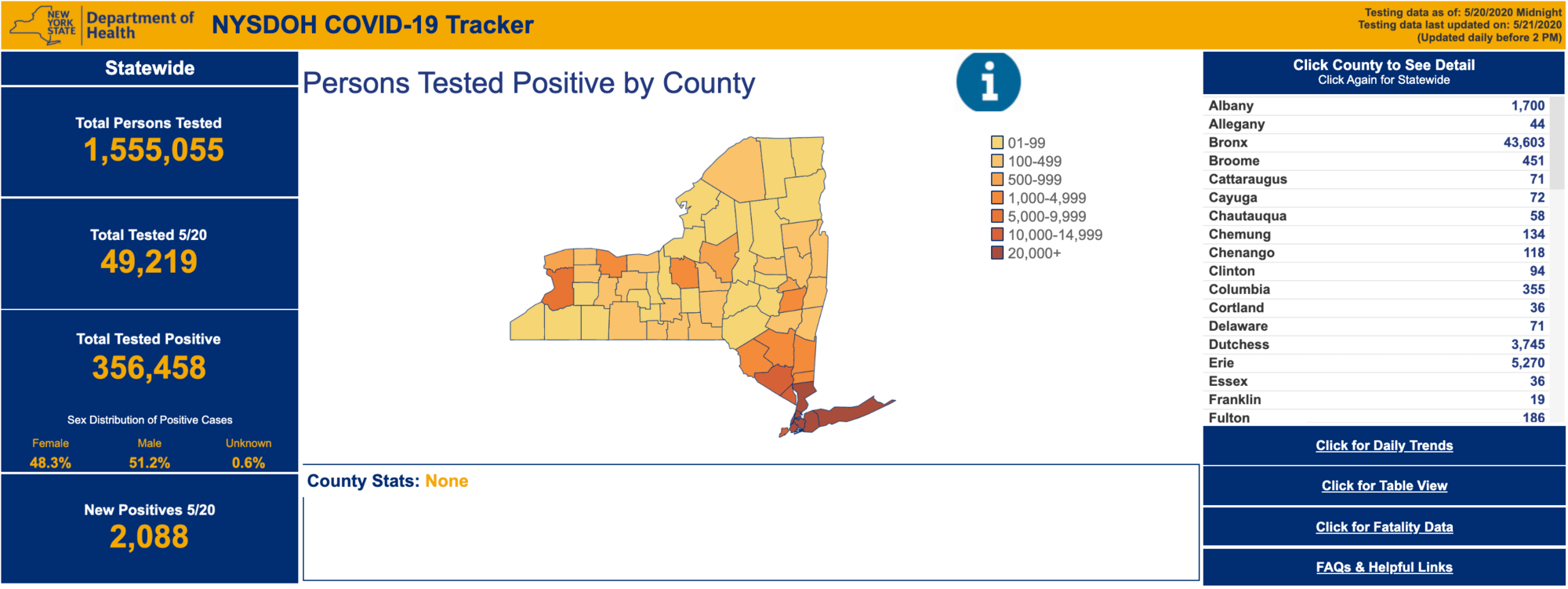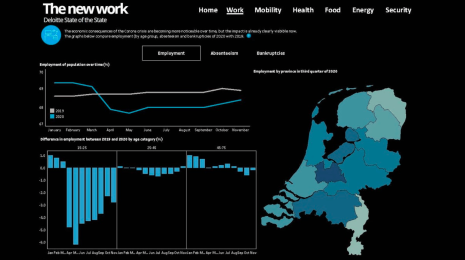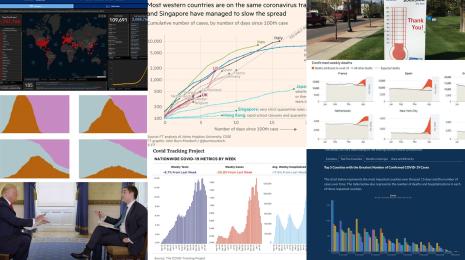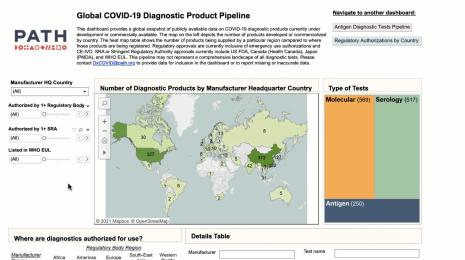What we can learn from the public sector’s response to COVID-19
A broad consensus is that COVID-19 will drive digital transformation in the public sector. During the 2020 Government Summit, speakers from Veteran Health Administration, Southwest Texas Regional Advisory Council, and FEMA discuss new processes, new technologies and innovations, and most importantly, a new mindset on decision making in the midst of crisis.
I recently had a fireside chat at our Government Summit with our CEO and President Adam Selipsky to get his thoughts about how the public sector is leading through change in response to COVID-19.
During this crisis, the rapid acceleration of data use by public sector organizations has been truly astounding. When the virus hit, the public sector almost immediately turned to data to help navigate the crisis. Federal, state, and local agencies like New York State Department of Health, King County (home to Seattle), and the National Health Service in the UK all set up dashboards and vizzes to track the virus—including number of infections, testing sites and supplies, hospital beds, healthcare personnel, and more. Quickly seeing and sharing data helped them make decisions fast, redirect resources, and save lives.

A broad and general consensus is this crisis is driving a business and social transformation, whether we want it or not. Every entity, including the public sector, will be driven to assess what they’ve learned and to define what will keep—or make them—relevant in this new reality. As a result, new processes, new technologies and innovations, and most importantly, a new mindset on decision making, will emerge. At the center of this transformation will be data! Specifically, how organizations create a data-driven culture at all levels of their organization to survive and thrive in this new reality.
"It gets to the heart of what it takes to succeed with making data a key asset in the organization, and making sure it stays that way, not just in times of crisis but making it a permanent state,” Adam said during our talk. “In many aspects, there will be no going back. You hear a lot about the ‘next normal,’ and data will be a big part of that. By the same token, it won’t just happen by itself."
At Tableau, we know that data should be central to all decision-making and processes. But seeing it in practice during this crisis we are even more convinced that data will drive the “next normal”—access and use of data will be imperative for any organization in the recovery ahead.
Here are some other key takeaways from this years’ Government Summit (watch the recording here).
Data is taking a central role in recovery efforts
One thing became abundantly clear during this crisis: If you’re not using data to guide your decision-making, you will quickly fall behind.
Data and analytics are central to evaluating all the information, filling in the missing pieces, and coming together to make a decision to move forward based on facts. Speed and agility are critical. In fact, we found in some cases that making a good decision too late was the same as making a bad decision early. When the stakes are this high—and the timeframe for decisive action is real-time—seeing, interacting, and understanding the right information is absolutely critical.
Take the Veterans Health Administration, for example. In their Government Summit presentation, they talked about needing a more comprehensive view of supply pipelines across their nationwide network of hospitals. To understand stock on hand and to create distribution plans, they had to centralize data from over 17 different data sources and tie together non-logistics data (like COVID-19 case data) with logistics data (like supply receipts) to prioritize supply distribution to the areas hit hardest by the virus. This foundational work not only benefited them in their real-time response, but it also set the stage to improve data processes, quality, and accuracy in the months ahead.
The Southwest Texas Regional Advisory Council is designated by the Texas Department of State Health Services (DSHS) to develop, implement, and maintain the regional trauma and emergency healthcare system for 22 counties. In his presentation, Division Director of Data Analytics, Lawrence Roakes talked about how they developed healthcare system stress scores, using a Tableau dashboard to track important metrics around overall system health. They also developed dashboards to track testing rates by region to make important logistics and operations decisions. And as the pandemic progresses, the council continues to refine their processes and encourage broader adoption across the agency so that when new questions arise, they have the data and people in place to answer them. It’s not a static process, but an interactive process of decision making.
In the recovery ahead, these new or adapted data processes will be key to respond to emerging challenges associated with stabilization and reopening.
A data-first mindset sets you up for a successful data culture
We know data and working in this new digital world are imperative to recovery and success ahead. But how do you make it stick when the crisis fades?
Last year, before coronavirus, we were talking with customers on a global scale about what it takes to make data an everyday practice. They told us that it wasn’t just about the technology. Many senior leaders said that it is about creating a data culture, establishing a new way of behaving and thinking, and developing a change-management program that puts data at the center of every decision.
Sometimes this means rethinking how data is consumed and shared. For example, in her Government Summit presentation, Amber M. Noel, Branch Chief of Analysis and Communications at FEMA talked about the Data Sharing Directive, signed by FEMA administrators in July 2019. When building out new data projects, they’re taking a “share by design” approach, emphasizing the importance of sharing data internally and with complimentary organizations like the American Red Cross and the Department of Housing and Urban Development—all while keeping data safe by baking in routine information use agreements and privacy controls.
We’re already seeing strong, top-down directives from leadership during this crisis that everyone should have access to data to drive critical decisions. As we move into the recovery phase, leadership shouldn’t let up on that mindset. Data is key in a crisis, and it is also essential for the long road ahead. You do this by creating a community around learning and sharing, upskilling your workforce in data literacy, and using your learnings to drive your long-term strategy moving forward.
We’re here to help
Transformation means staying relevant in periods of ongoing change. The common element for organizations working hard to regain their footing, and establish or maintain relevance, is data.
To help you move forward, Tableau has created the COVID-19 Data Hub, which includes a jumpstart workbook to help you start your own analysis, and our Leading Through Change With Data content series features the best ideas, tips, and practices we’ve collected from leaders around the world. Salesforce also just launched Work.com, a guide to reopening that will help all of us get back to work safely.
Additionally, we’re offering free elearning for Tableau for 90 days and the Tableau Desktop Specialist Certification at a 50 percent discount (offers valid through June 30, 2020). We hope that by making Tableau more widely available, it will give your people the skills they need to help them through this difficult time and prepare them for the “next normal.”








